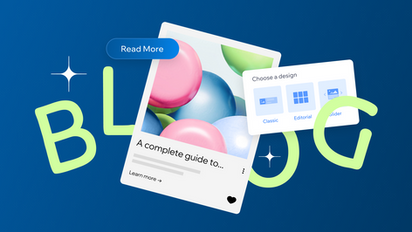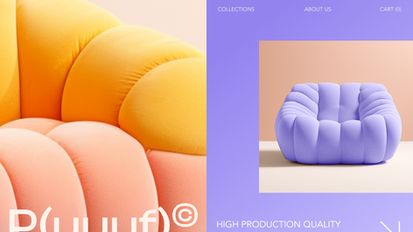Create Shortcut for Website on Desktop FAQ
How to Create Shortcut for Website on Desktop
Create Shortcut for Website on Desktop
Building a website can seem like a daunting task, especially for those who are not familiar with web development. However, by understanding the key details involved in website building, you can create a functional and visually appealing site that effectively communicates your message to your target audience. In this article, we will explore some of the crucial aspects of website building, from choosing a domain name to selecting a hosting provider and designing the layout of your site.

Create Shortcut for Website on Desktop Resources
Create Shortcut for Website on Desktop
A web designer’s primary goal is to create a visually appealing website that engages users and encourages them to explore further. This involves using a combination of technical skills and creativity to design a layout that is both aesthetically pleasing and easy to navigate. Web designers must also have a good understanding of user experience (UX) design principles to ensure that the website is intuitive and user-friendly.
In addition to creating the overall design of a website, web designers are also responsible for implementing various features and functionalities. This includes integrating multimedia elements such as images, videos, and animations, as well as creating interactive elements like buttons, forms, and drop-down menus. Web designers may also be responsible for optimizing the website for search engines (SEO) to help improve its visibility and ranking in search results.
To be successful as a web designer, one must possess a strong foundation in graphic design principles, as well as a good understanding of web development technologies such as HTML, CSS, and JavaScript. These skills are essential for creating visually appealing and responsive websites that work seamlessly across different devices and browsers.
Web designers often work closely with clients or project managers to understand their requirements and objectives for the website. This involves conducting research, brainstorming ideas, and creating mock-ups or wireframes to present to the client for review and feedback. Once the design is approved, web designers then proceed to code and develop the website using various programming languages and tools.
There are many different types of web designers, each with their own area of expertise. For example, graphic designers specialize in creating visual elements such as logos, icons, and illustrations, while user interface (UI) designers focus on designing the layout and overall look and feel of a website. User experience (UX) designers, on the other hand, are more concerned with how users interact with the website and how to improve their overall experience.
The role of a web designer can vary depending on the size and scope of the project. For small businesses or individuals looking to create a simple website, a web designer may be responsible for all aspects of the design and development process. However, for larger, more complex projects, web designers may work as part of a team alongside web developers, content creators, and digital marketers to bring the website to life.
In addition to technical skills, successful web designers also possess strong communication and problem-solving abilities. They must be able to effectively communicate their ideas and collaborate with others to bring a project to completion. Web designers must also be able to adapt to changes and solve problems quickly and efficiently, as technology and design trends are constantly evolving.
1. Minimalistic Design
One popular trend in web design is minimalism. A minimalistic design relies on clean and simple layouts, with a focus on white space and essential elements. This design approach ensures that the user’s attention is directed towards the most important information on the website. Minimalistic designs are visually appealing and easy to navigate, resulting in a better user experience.
2. Bold Typography
Typography plays a significant role in web design and can greatly impact the overall look and feel of a website. Bold and eye-catching fonts can make a strong statement and help emphasize key messages. Experimenting with different font styles, sizes, and colors can add visual interest to your website and make it more engaging for visitors.
3. Interactive Elements
Adding interactive elements to your website can enhance user engagement and make the browsing experience more enjoyable. Incorporating features such as sliders, animations, hover effects, and interactive buttons can make your website more dynamic and visually appealing. Interactive elements can also help guide users through the website and draw their attention to specific content.
4. Parallax Scrolling
Parallax scrolling is a popular web design technique that creates a sense of depth and movement on a website. This effect is achieved by moving the background content at a different speed than the foreground content as the user scrolls down the page. Parallax scrolling can create a visually stunning and immersive experience for visitors, making your website more memorable and engaging.
5. Dark Mode
Dark mode has become a popular design trend in recent years, with many websites offering a dark color scheme as an alternative to the traditional light theme. Dark mode is not only visually appealing but also easier on the eyes, especially in low-light environments. Implementing a dark mode option on your website can cater to the preferences of different users and provide a more customizable experience.
6. Mobile Optimization
With the increasing use of smartphones and tablets, it is crucial to ensure that your website is optimized for mobile devices. Responsive web design allows your website to adapt to different screen sizes and resolutions, providing a seamless experience across all devices. Mobile optimization is essential for reaching a larger audience and improving user engagement on your website.
7. Custom Illustrations and Graphics
Incorporating custom illustrations and graphics can add a unique and personal touch to your website. Custom artwork can help reflect your brand’s personality and values, creating a memorable visual identity for visitors. Whether it’s hand-drawn illustrations, infographics, or animations, custom graphics can enhance the overall look and feel of your website and make it more visually appealing.
8. Video Backgrounds
Using video backgrounds on your website can make a powerful impact and capture the attention of visitors. Video backgrounds can help set the tone for your website, convey a message, and create a visually engaging experience. Whether it’s a short looped video or a full-screen background video, incorporating multimedia elements can make your website more dynamic and interactive.
9. Accessibility Features
Web accessibility is an important consideration in web design, ensuring that people with disabilities can access and use your website effectively. Integrating accessibility features such as alt text for images, keyboard navigation, and screen reader compatibility can make your website more inclusive and user-friendly. By making your website accessible to all users, you can reach a wider audience and improve the overall user experience.
10. Personalization
Personalizing the user experience can help create a more engaging and tailored experience for visitors. Implementing features such as personalized recommendations, dynamic content, and targeted messaging can make your website more relevant and appealing to individual users. By leveraging data and user preferences, you can create a more personalized and interactive experience that keeps visitors coming back for more.

The Ultimate Guide to Create Shortcut for Website on Desktop
Create Shortcut for Website on Desktop
In conclusion, AI web developers are a crucial part of the technological revolution that is transforming the field of web development. These professionals have a deep understanding of AI algorithms, machine learning, natural language processing, and other AI technologies that enable them to create websites that are smarter, more intuitive, and more user-friendly. By leveraging AI technologies, AI web developers are pushing the boundaries of what is possible in web development, creating websites that can think, learn, and adapt to user preferences. If you are looking to create innovative and dynamic websites that stand out in a crowded marketplace, consider working with an AI web developer who can help you harness the power of AI technologies to achieve your goals.


